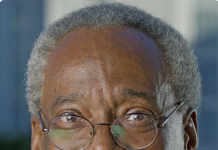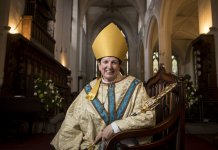Statement from the Anglican Safe and Inclusive Church Commission
The Anglican Safe and Inclusive Church Commission has completed its preparations for investigating the allegation by the Revd June Major, a former priest of the Diocese of Cape Town, that a former colleague raped her in 2002.
The Commission (also referred to in the Church as “Safe and Inclusive Church”) believes the Revd Major’s complaint warrants being investigated further and a Commission representative has invited her to nominate a counsellor and other persons to support her during the investigation process. If she feels it necessary, the Commission can also help facilitate her obtaining such support.
As indicated previously by the Archbishop, in the matter relating to Revd Major, Safe and Inclusive Church received on 8 July 2020 a formal (written) complaint relating to her alleged rape in 2002. In terms of our process, we meet with the parties involved (as well as any other members that may be identified as pertinent) and conduct an interview with them.
In our contact with the Revd Major, she expressed concern about the impartiality of an internal church process. As a consequence, Safe and Inclusive Church has included a reputable part-time commissioner of the Gender Commission on the panel which will investigate her complaint. It is hoped that this will provide her with an added level of trust and comfort with the process.
We are awaiting a response from Rev. Major on these matters, and that will then determine the next steps.
Historically, over the 150 years of its history the Church as a voluntary organisation has been governed under its Canon Law (church law). The courts have recognised Canon Law as a parallel but separate system of law, governing its particular sphere of church affairs. This has required that Canon Law embodies the principles of natural justice recognised in society at large and updated from time to time in light of wider developments in jurisprudence.
In the past 20 years, the Church has amended its Canon Law to comply with developments in labour law, establishing strict Pastoral Standards which govern the behaviour and action of its ministers, and making provision for processes to protect the rights of both complainants and respondents. The processes laid down by the Canons may be compared with a secular organisation’s grievance and disciplinary procedures.
Safe and Inclusive Church is a newly established faculty of the Church, assented to at the Church’s governing Synod in September 2019. This faculty was established to assist complainants and the Church to respond to allegations of abuse or harm (of which there are thirteen categories) and then move it into the Canonical disciplinary process. (Details of the Commission, and links to the relevant sections of Canon Law, can be found here: https://anglicanchurchsa.org/safe-church-guide/ )
The Safe and Inclusive Church panel which investigates a complaint conducts interviews and compiles all relevant documentation, then delivers a report to the Diocese concerned. The panel does not make findings or recommendations, but the Bishop or Vicar-General of the Diocese in which the respondent is resident appoints a Board of Preliminary Inquiry – or may appoint Safe Church as the Board of Inquiry – whose task it is to establish if a prima facie case exists.
The Bishop or Vicar General is able to take such other actions as the Canons permit, including the suspension of the respondent minister. Should a prima facie case be established, a Diocesan Tribunal considers the case against the accused. Either party in the matter has a right of appeal should charges not be brought before a Tribunal.
Having this matter investigated in any other way but in terms of our Canon Law, would render our process invalid in terms of our Canons and hence the Church would be unable to act on findings as well as be subject to court sanction for not following our own process.
Both Revd Major as the complainant as well as the respondent are free, at their own cost, to be accompanied by a representative of their choice and to seek such counsel and advice as they may need at any stage of the process.
The appointment of members of the Tribunal, apart from the Bishop who as President of the Tribunal is appointed by the Archbishop, is subject to challenge by both complainant and accused.
As an ordained minister of the church, albeit one that tendered her resignation as a licensed minister in 2014, Revd. Major is still bound by the precepts of Canon Law as this was part of the oaths and declarations she made at her ordination. This means that any disputes or complaints she may have with the Church would need to follow the precepts of the Canons as they prevail at the time.
Canon Rosalie Manning
Chairperson
Anglican Safe and Inclusive Church Commission










